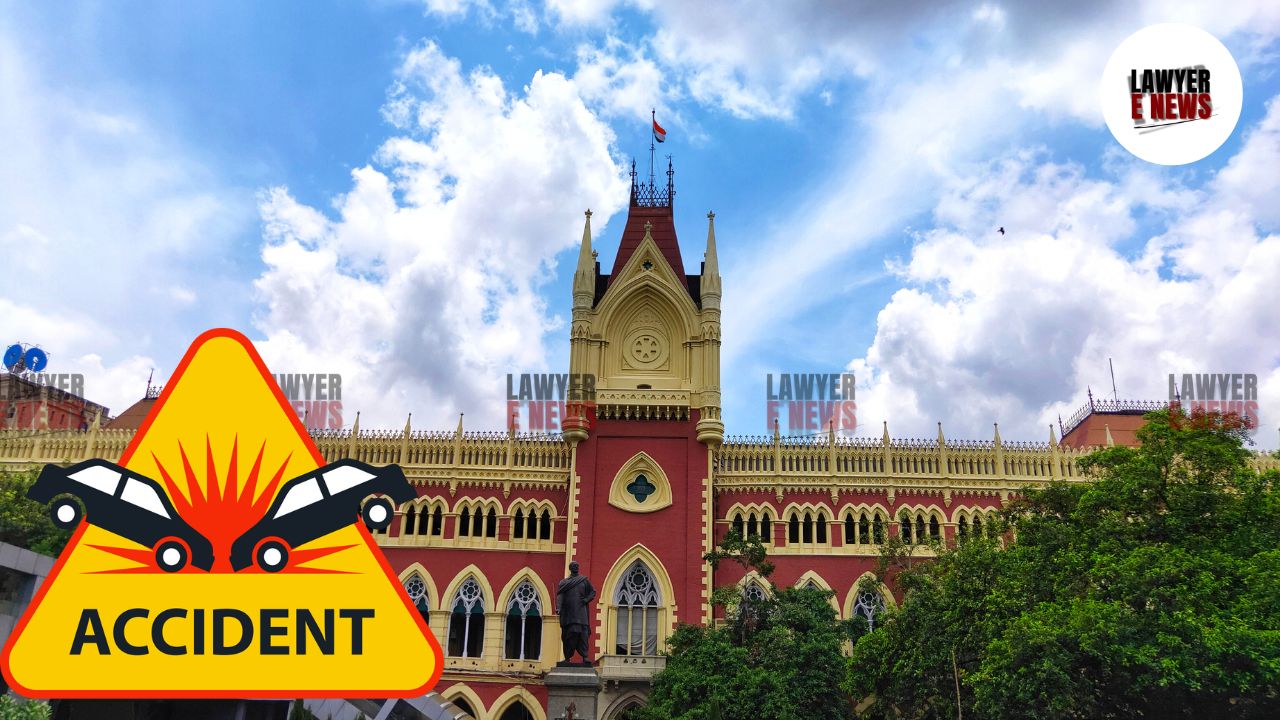-
by Admin
15 February 2026 5:35 AM



The Calcutta High Court has upheld the compensation awarded by the Motor Accident Claims Tribunal (MACT) in a fatal road accident case, while also allowing the National Insurance Company Ltd. To recover the compensation amount from the vehicle owner. The judgment, delivered by Justice Shampa Dutt (Paul), emphasized the significance of adhering to the terms of the insurance policy, particularly concerning the validity of the driver’s license at the time of the accident.
On April 22, 2009, Brajodulal Sarkar was riding his bicycle near Chakvrigu when he was struck by a bus operating under the name “Patikha.” The bus, driven at high speed, veered off the road and hit Sarkar, who sustained severe injuries and later succumbed to them at Balurghat District Hospital. Sarkar, an upper division clerk earning Rs. 22,243 per month, was the sole breadwinner for his family. The claimants, including his wife and children, filed for compensation under Section 166 of the Motor Vehicles Act, 1988.
The Tribunal had initially awarded a compensation of Rs. 12,75,108 to the claimants, with an additional Rs. 5,000 for loss of consortium. The owner of the offending vehicle did not contest the case, leading to an ex-parte decision against him. The insurance company, however, contested the award, citing that the driver did not possess a valid license at the time of the accident.
The High Court examined the case, noting that the driver’s license had lapsed on November 11, 2008, and was only renewed on June 22, 2009, thus rendering the license invalid at the time of the accident on April 22, 2009. The court held that this lapse constituted a clear violation of the insurance policy terms, justifying the insurance company’s right to recover the compensation from the vehicle owner.
In its legal analysis, the court referred to the Supreme Court’s decision in Balu Krishna Chavan vs. The Reliance General Insurance Company Ltd. (2022), which established that while insurance companies are generally not liable to pay compensation in cases of invalid licenses, they may be directed to “pay and recover” the amount from the vehicle owner to serve the ends of justice. The High Court applied this principle, modifying the Tribunal’s award to allow the insurance company to recover the compensation paid to the claimants from the vehicle owner.
The judgment reinforces the strict enforcement of insurance policy terms, particularly regarding the validity of the driver’s license. By allowing the insurance company to recover the compensation from the vehicle owner, the court has underscored the importance of compliance with legal requirements in motor vehicle operation. This ruling is likely to impact future cases where similar lapses in policy conditions are identified, ensuring that justice is served while maintaining the integrity of insurance contracts.
Date of Decision: August 22, 2024
Smt. Dakshabala Sarkar & Ors. Vs. National Insurance Company Ltd. & Ors.
